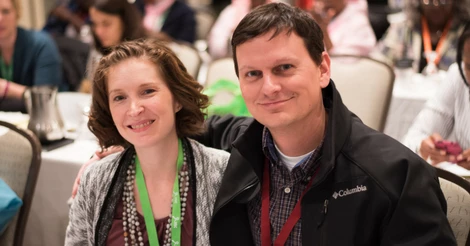What are some of the common issues that young breast cancer survivors face in relation to sexuality and intimacy? What are the questions and issues that come up most often?
Among women I’ve talked to, the most common issue that young survivors bring up is not feeling “sexy” anymore or feeling like they’ve “aged 10 years.” This is so understandable, since breast cancer is such a physically and emotionally taxing experience that changes so many aspects of a woman’s life.
Why is it important to give attention to this topic? What role does sexuality and intimacy play in young survivors’ lives? What are some of the effects of cancer treatment and how does it affect quality of life in relation to this aspect of their lives?
Sexuality and intimacy are often hugely important parts of adult romantic relationships. Studies show that sexual satisfaction is strongly tied to overall intimate relationship quality and satisfaction for both men and women. So the ability to have a satisfying intimate life is integral to relationship functioning.
Remember, sexual interest varies from person to person and couple to couple, so it’s not about living up to some ideal, but about finding a level of sexual connection that works for you. In addition, sexuality is a key component of self-concept for many people, and a source of pleasure and connection in life.
What are some of your tips to resolve the issues? What can women do to improve their sexual functioning after breast cancer?
Breast cancer affects multiple domains of sex and intimacy. There can be physical, emotional, psychological and relational aspects of these effects. For example, a woman might have physical issues such as pain with intercourse and low desire, but she may also experience emotional issues such as sadness or embarrassment, and relational issues such as difficulty communicating with a partner about her intimacy concerns. Each of these domains deserves attention.
Here are some specific tips for addressing concerns in each domain:
Physical:
Be as good to yourself as possible. Eat well, sleep and exercise to help with energy, mood and coping.
Find sexual and intimate activities that are comfortable and pleasurable for you right now. Expand your definition of what intimacy is – it doesn’t have to include intercourse or orgasms; maybe it’s more like spooning or massages or whatever else you find comfortable and connecting.
If you have specific physical symptoms like pain or dryness, talk to your doctor about what you can do to address them.
If you have low desire for sex, consider “starting from neutral” with an activity you’ve identified that you might like and see how it feels. You may not need to have desire before you start.
Emotional:
Explore and process your emotions – using journaling, mindfulness, talking to supportive friends, family or professionals – rather than suppressing them or brushing them aside.
Psychological:
Become aware of unkind or unhelpful thoughts and beliefs about yourself and work to change them. For example, “I’ll never feel sexy again” is not helpful and likely not true. A more helpful thought might be “I don’t feel sexy now, but with time and trying a few things, I intend to get back to feeling sexy when I want to.”
Relational:
Communicate. Talk to your partner about your feelings and listen to your partner’s input as well. Breast cancer is a lot to process and you may need to have ongoing conversations about it.
If there are difficult topics that you want to talk about with a partner, it can be helpful to write down what you want to say in advance to help clarify your thoughts.
Use “I” statements to express your feelings. For example, “I feel upset when you want sex and I don’t,” rather than, “You make me upset when you pressure me to have sex.”
About Erica Marchand, PhD
Dr. Marchand is a licensed psychologist specializing in sexual and relationship concerns. She earned her Ph.D. in Counseling Psychology from the University of Oregon, and arrived in sunny Los Angeles in 2010 for postdoctoral training at UCLA. Dr. Marchand has conducted research in the areas of family influences on sexual behavior and sexual adjustment after cancer. She helped to develop and deliver a workshop called Life after Breast Cancer in her role as Project Scientist at UCLA. She's also currently co-authoring a book chapter called 'Sex and Cancer' in the Textbook of Clinical Sexual Medicine, due out next year.
Learn more about sex, intimacy and breast cancer from Sabitha Pillai-Friedman, PhD, LCSW, CST, Kristen Carpenter, PhD, and Barbara Musser.




